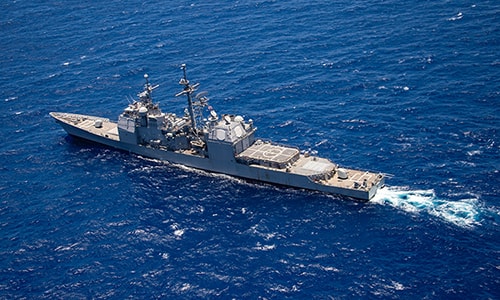China does not allow US warships to visit Hong Kong
China has rejected a request for two US warships to visit Hong Kong amid tensions in the special administrative region, US officials said on August 13.
|
Cruiser USS Lake Erie (CG-70) during the RIMPAC exercise in July 2018. Photo:US Navy. |
Visits to Hong Kong by the amphibious transport dock USS Green Bay (LPD-20), scheduled for late August, and the cruiser USS Lake Erie (CG-70), scheduled for September, have been canceled, according to unnamed US officials. One official said China has not given a specific reason for rejecting the visits by US warships.
The move comes amid protests in Hong Kong that have escalated tensions in the special administrative region. Clashes broke out on the evening of August 13 at Hong Kong International Airport when protesters prevented ambulances from taking an unconscious man to the emergency room. Riot police were forced to use force to intervene and assist the ambulance crew.
More than 1,000 protesters flooded into Hong Kong International Airport from the afternoon of August 13, occupying areas around check-in counters, causing many flights to be canceled. Protesters built barricades in many aisles with luggage carts and other objects. Previously, Hong Kong International Airport was closed on August 12 when more than 5,000 protesters flooded in.
Protests in Hong Kong erupted on June 9 to oppose a bill that would allow extradition to jurisdictions with which the territory has not signed an extradition treaty, including mainland China. Although the government has withdrawn the bill, protesters are still demanding the resignation of Chief Executive Carrie Lam.
China has previously denied visits to Hong Kong by US warships, most recently in September 2018 when the USS Wasp amphibious assault ship was denied permission to visit Hong Kong due to trade tensions and US sanctions on a Chinese military unit. Chinese Foreign Ministry spokesman Geng Shuang said China would approve requests for US military ships to visit Hong Kong "based on the principle of sovereignty and the detailed situation".




